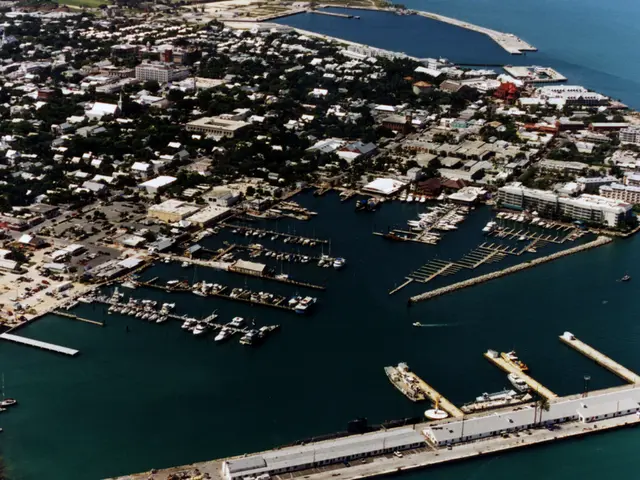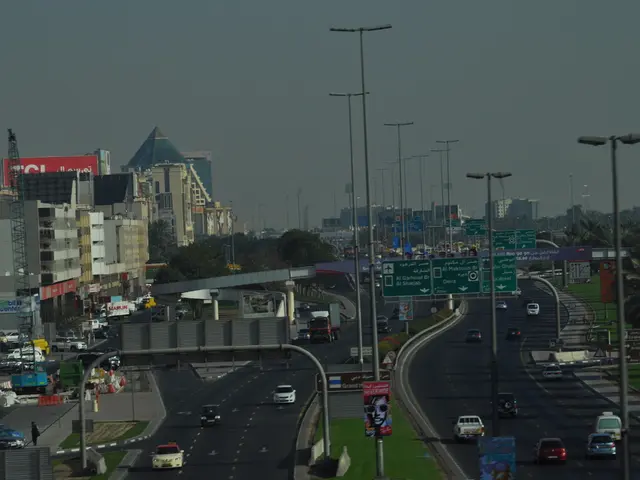Ex-Zambian President to be interred in his home country, Zambia, as per South African court decision.
Edgar Lungu, the former president of Zambia, passed away in South Africa on June 5, 2025. Since then, a dispute has arisen between the government and Lungu's family over his burial place.
Initially, there was an agreement for Lungu's body to be repatriated to Zambia for a state funeral and burial at Embassy Park in Lusaka. However, on the scheduled repatriation day (18 June 2025), Lungu's family reportedly refused to proceed with transferring the body to Zambia, instead insisting on a private ceremony in South Africa.
The Gauteng High Court in Pretoria ruled in favour of the Zambian government, ordering the repatriation of Lungu's remains to Zambia for a state funeral and burial. The court held that the remains belong to Zambia under Zambian law, and the personal wishes of the family could not override the public interest of the Zambian nation.
The judge's ruling stated that a former president's personal wishes or the wishes of his family cannot outweigh the right of the state to honour that individual with a state funeral. This ruling mandated that the body be preserved and released for repatriation despite the family's opposition.
Following the decision, Lungu's family has appealed the court order, prolonging the dispute. Lungu's widow and children have blocked his repatriation due to their opposition to current Zambian president Hakainde Hichilema's attendance at the funeral.
This dispute has highlighted political and emotional tensions in Zambia following Lungu’s death. Lungu's wife and children have been charged with corruption and possession of suspected proceeds of crime since losing the election in 2021. Lungu's daughter Tasila Lungu was arrested in February on money laundering charges.
Zambia filed a lawsuit to halt Lungu's burial in South Africa, and the judge ordered Lungu's family to immediately surrender his body to the Zambian authorities for repatriation and burial in Lusaka. It is not stated where Lungu's body currently is located or whether his family has complied with the court's order.
This ongoing dispute serves as a reminder of the complexities that can arise when personal wishes clash with national interests and laws.
- The dispute over former President Edgar Lungu's burial place between his family and the Zambian government continues, after the Gauteng High Court in Pretoria ordered the repatriation of his remains for a state funeral and burial in Zambia.
- Despite the court ruling, Lungu's family has appealed the order, which has prolonged the disagreement, with his widow and children blocking his repatriation due to their opposition to current Zambian President Hakainde Hichilema's attendance at the funeral.
- The judge's decision emphasized that a former president's personal wishes or those of their family cannot supersede the state's right to honor that individual with a state funeral.
- This ongoing dispute exposes the political and emotional tensions in Zambia following Lungu’s death, as Lungu's wife and children have been charged with corruption and possession of suspected proceeds of crime since losing the election in 2021. Lungu's daughter Tasila Lungu was arrested in February on money laundering charges.
- The conflict also raises questions about the complexities that arise when personal wishes collide with national interests and laws, as demonstrated by Zambia's lawsuit to halt Lungu's burial in South Africa.
- In addition to political turmoil, the dispute has had wider implications, including the potential consequences for the Zambia's international relations, as well as concerns over the possibility of delays in policy and legislation, business investments, health matters, immigration issues, war-and-conflicts, general news story developments, crime-and-justice events, accidents, and fires.








